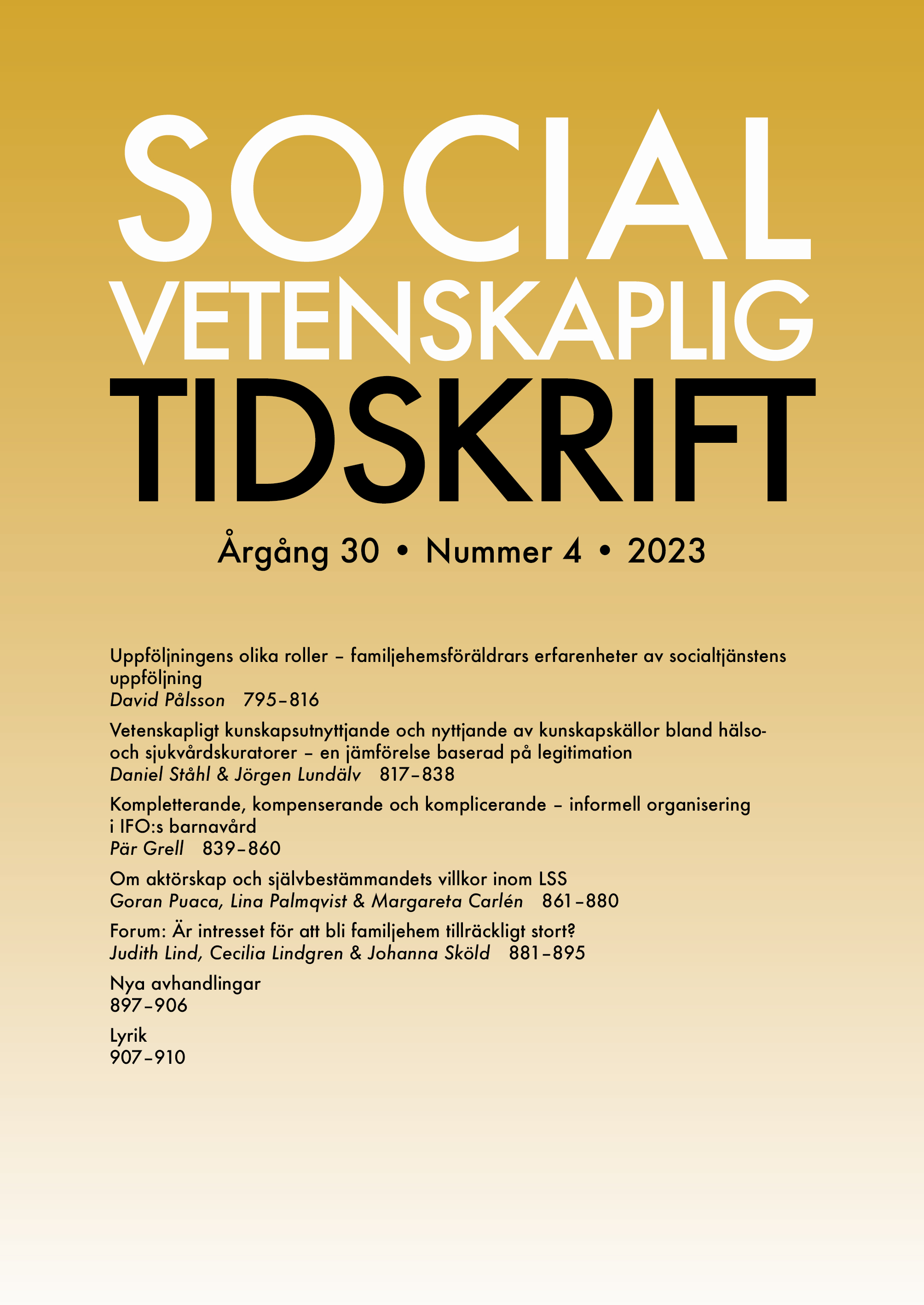Kompletterande, kompenserande och komplicerande
– informell organisering i IFO:s barnavård
DOI:
https://doi.org/10.3384/SVT.2023.30.4.5060Keywords:
formalisation, specialisation, informal organisation, child welfare, personal social servicesAbstract
Complementing, compensating and complicating – informal organisation in Swedish child fare work
The child welfare work within the Swedish personal social services (PSS) is clearly marked by formalisation and specialisation. It is guided by a diversity of national and local guidelines, while different units assume responsibility for specific tasks (e.g., intake, investigation and decision, or care and treatment). A risk of service fragmentation has been identified as a substantial downside to these organisational settings. However, prior research has mainly focused on formal organisational structures and how work is ‘supposed to’ be carried out. Less attention is paid to informal organisation, namely how work is ‘actually performed’ on day-to-day basis, which has been identified as an important but often overlooked aspect for understanding organisational performance.
Therefore, the aim was to describe and analyse the influence of informal organisation in child welfare cases. Non-participating observations and group interviews were conducted in 11 Swedish municipalities. The findings show that informal organisation can ‘grease the wheels’ in child welfare cases: firstly, by complementing formal structures and offering alternative channels for collaboration and information exchange; and secondly, by compensating for gaps in areas of responsibility within the formal organisation, such as when staff offer informal care and support, even though their work is supposed to specifically focus on investigation and decision making, or individual social workers assume an informal case management role. Nevertheless, informal organisation was also found to complicate work, as unregulated and informal areas of work also allow the conflicting interests and work logics among different units and their staff to unfold. The findings are finally discussed in relation to the future organisation of social services.
Downloads
Published
How to Cite
Issue
Section
License
Copyright (c) 2024 Pär Grell

This work is licensed under a Creative Commons Attribution 4.0 International License.
Allt material i Socialvetenskaplig tidskrift publiceras sedan 2022 (Vol 28 Nr 2) med omedelbar öppen tillgång (open access), under Creative Commons-licensen CC BY 4.0. Upphovsrätten till innehållet tillhör respektive författare.
Allt innehåll i tidskriften är fritt tillgängligt utan kostnad och får fritt läsas, laddas ned, kopieras, delas, skrivas ut och länkas. När innehållet används måste författare, källa och licens anges. Författaren kan fritt göra sin publicerade text tillgänglig på institutionella och internetbaserade arkiv, exempelvis sitt lärosätes digitala arkiv eller andra tjänster för detta.
Inga publiceringsavgifter tas ut vid publicering i Socialvetenskaplig tidskrift.


